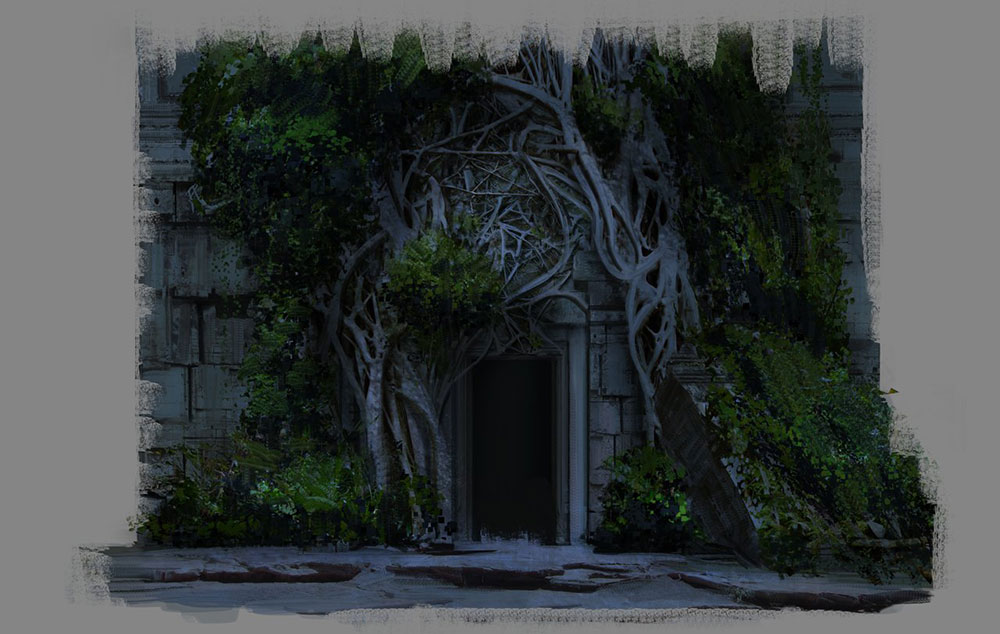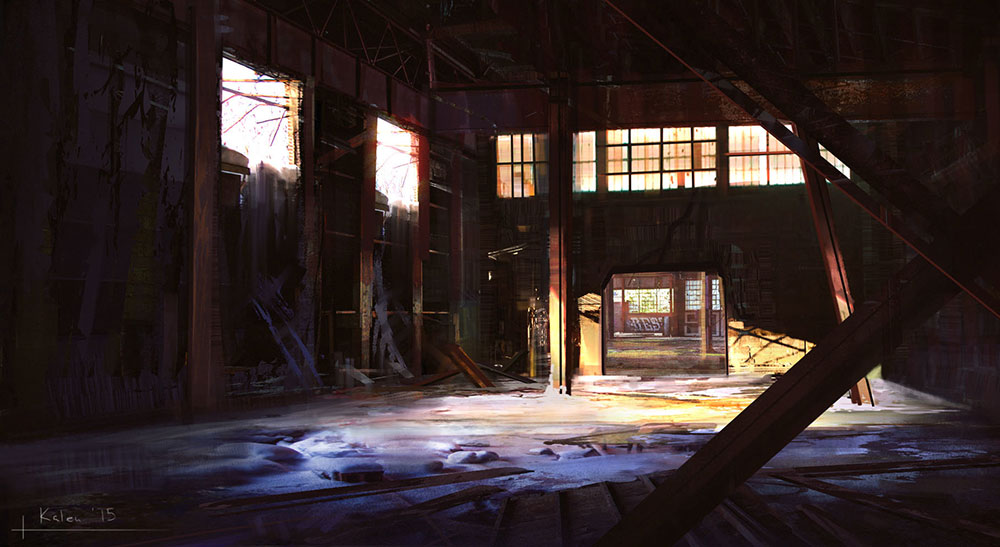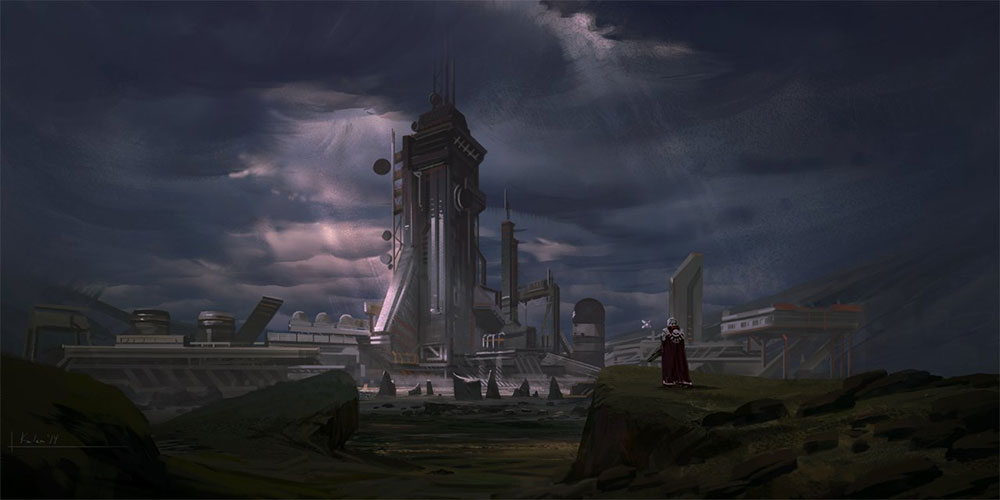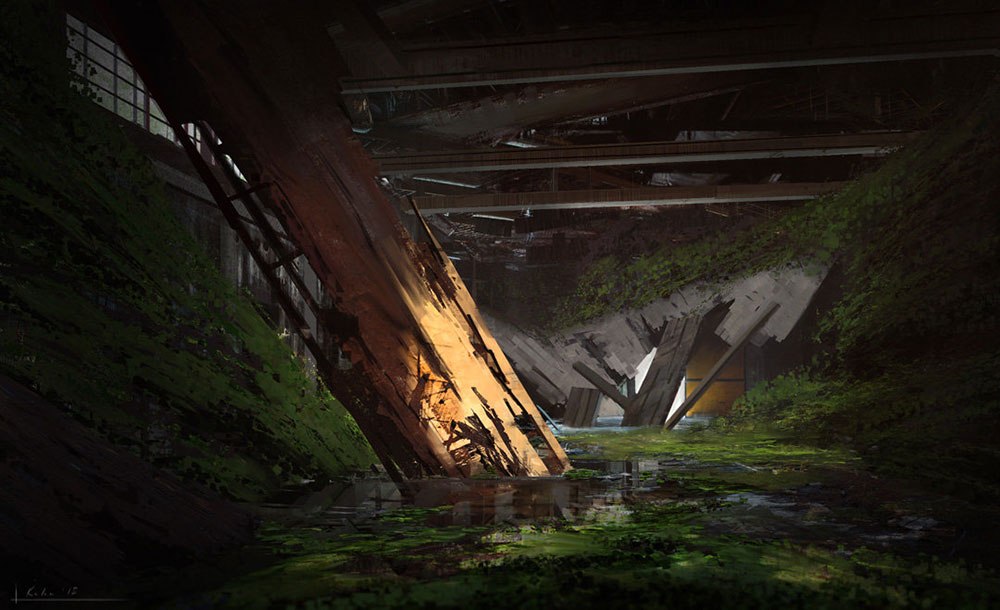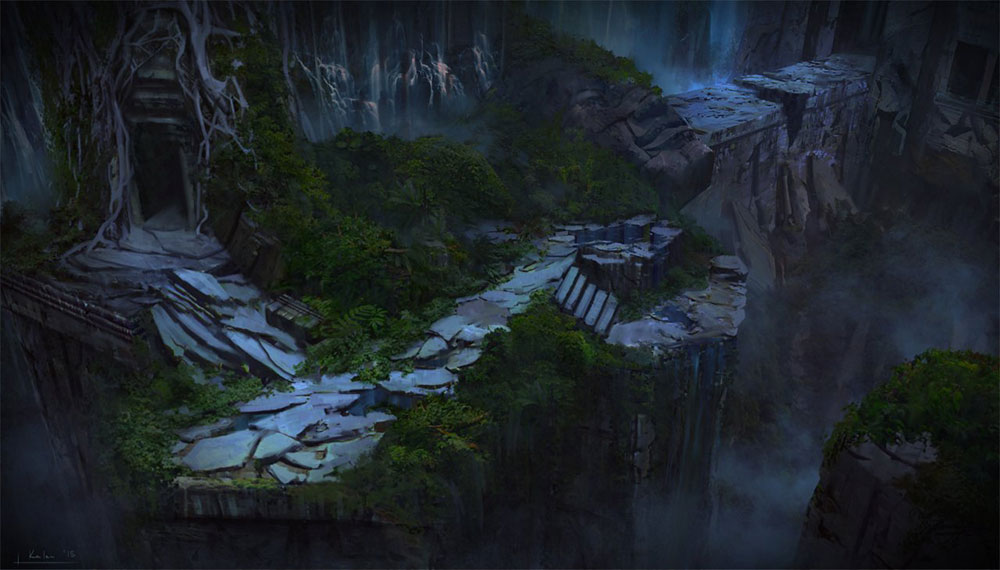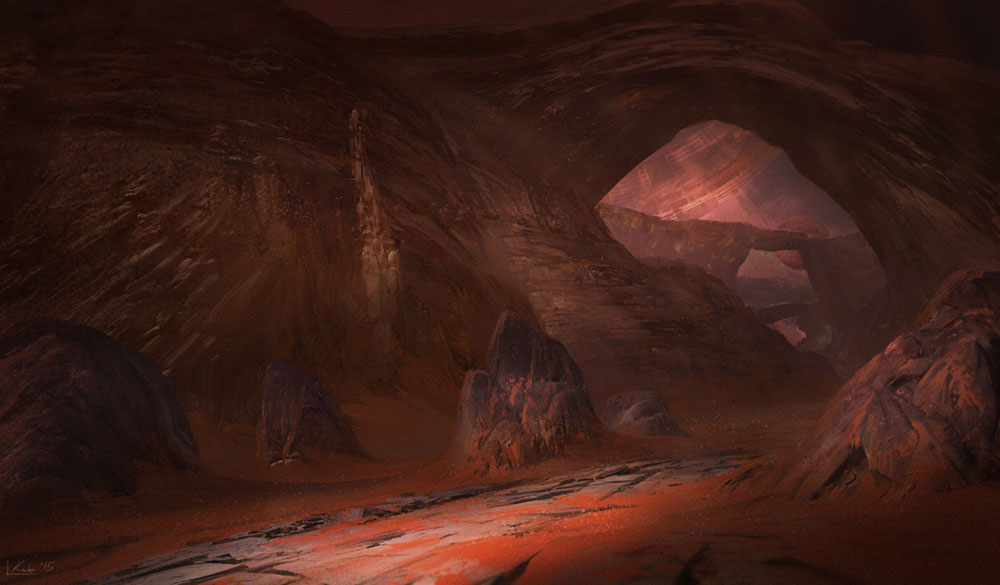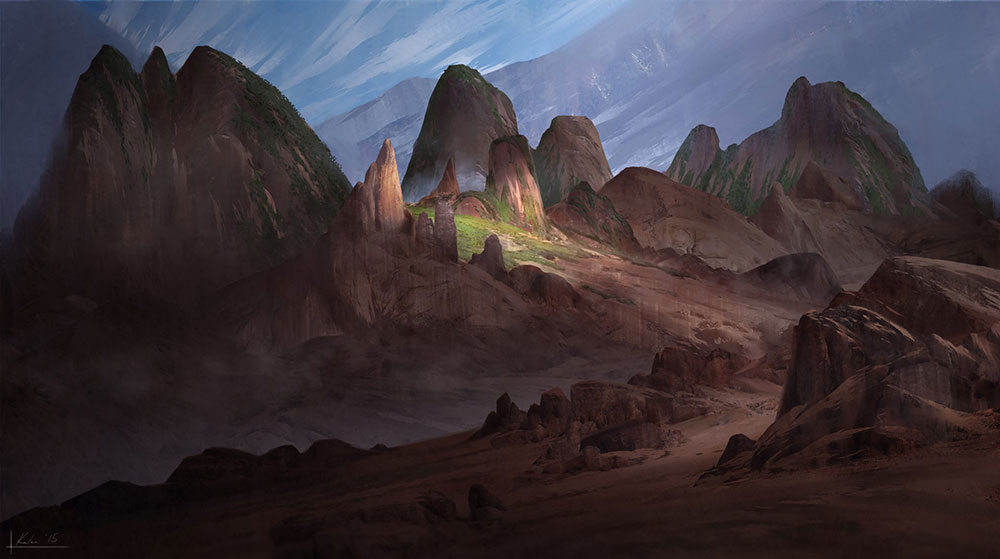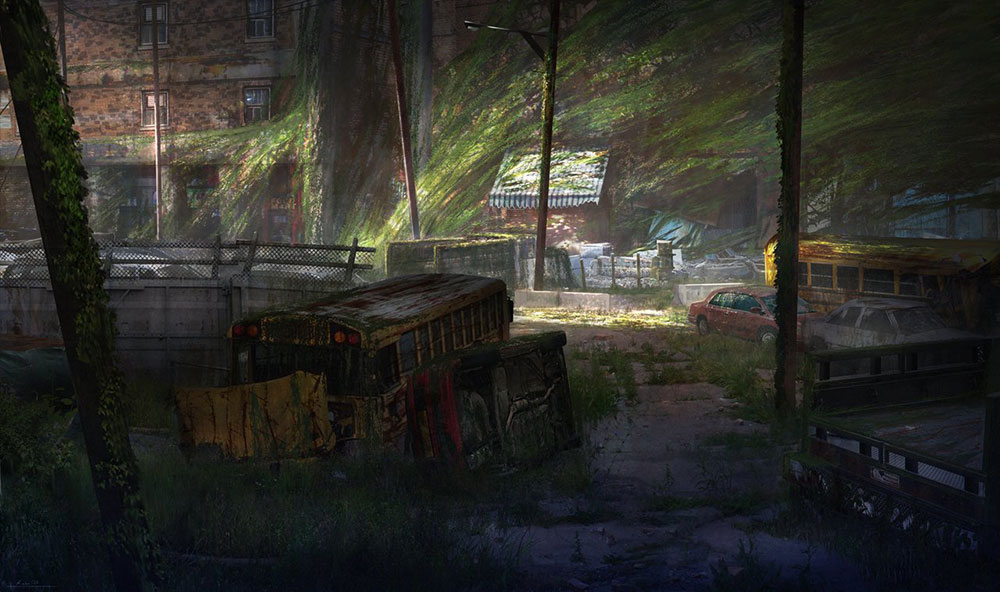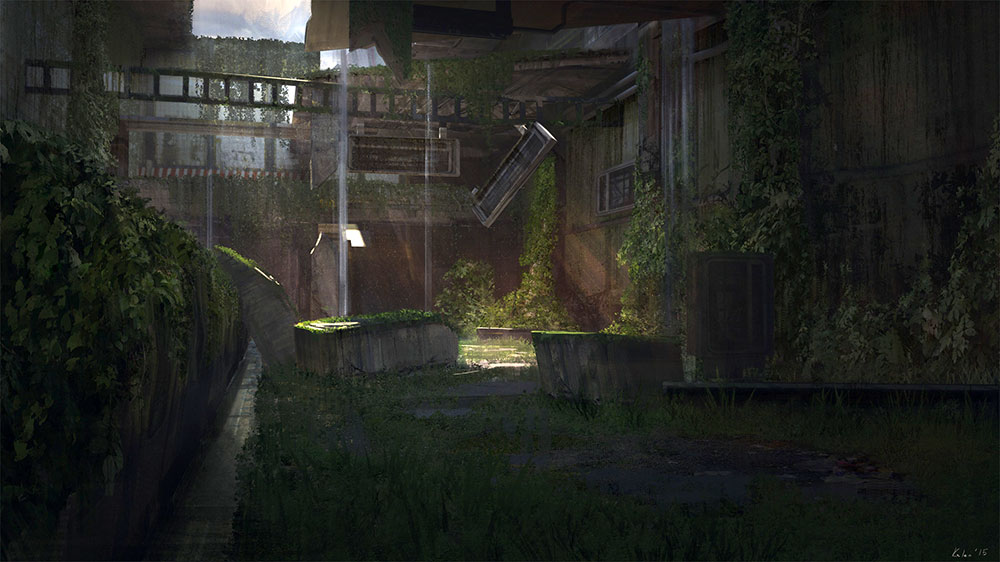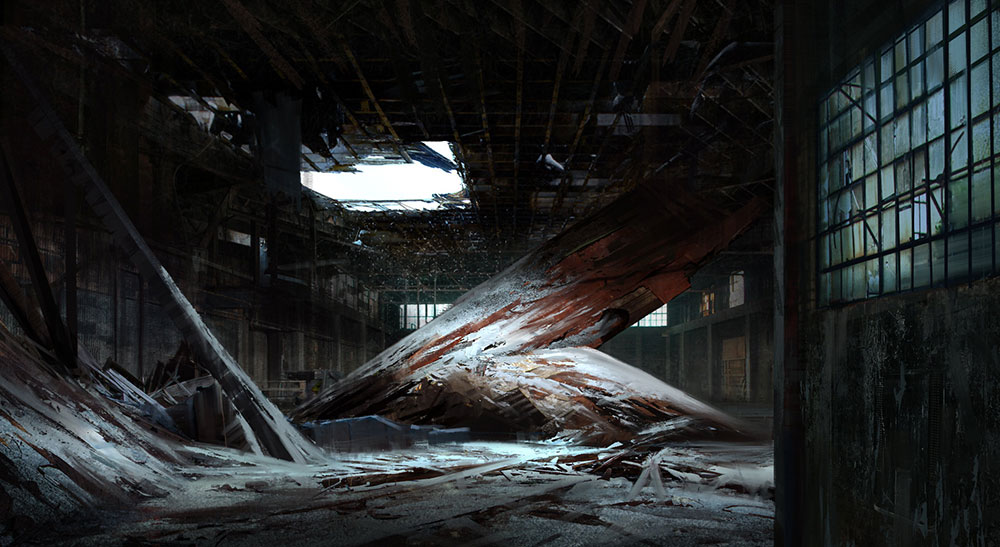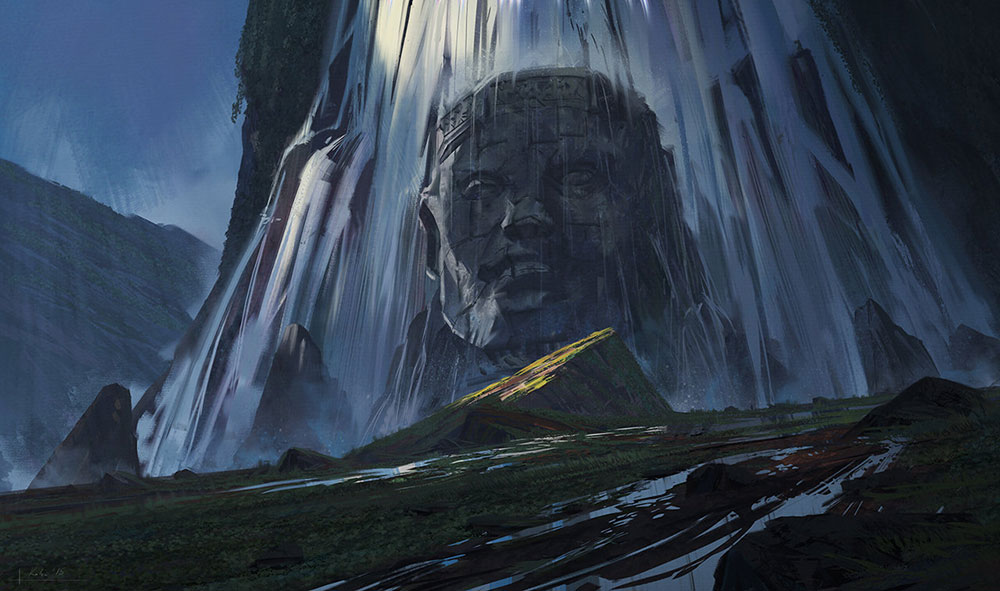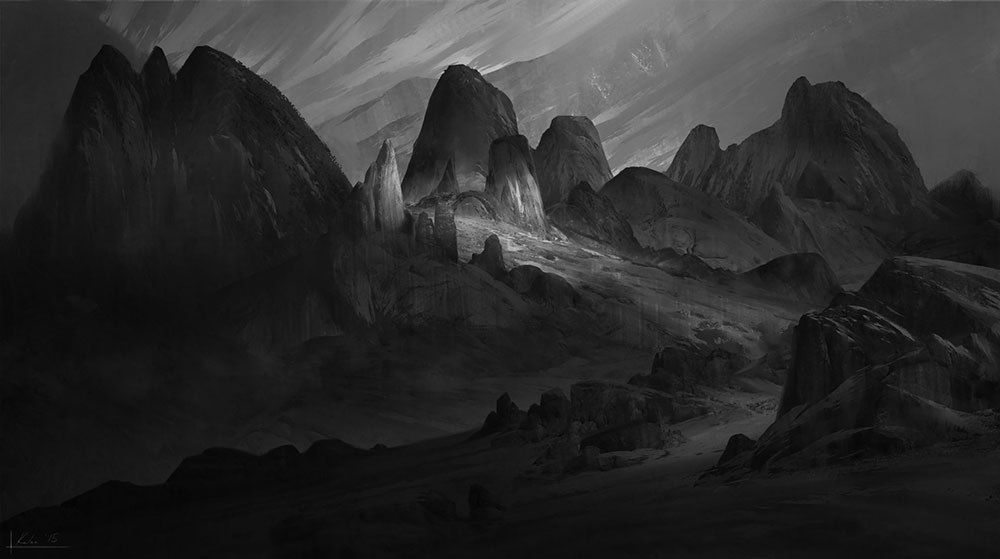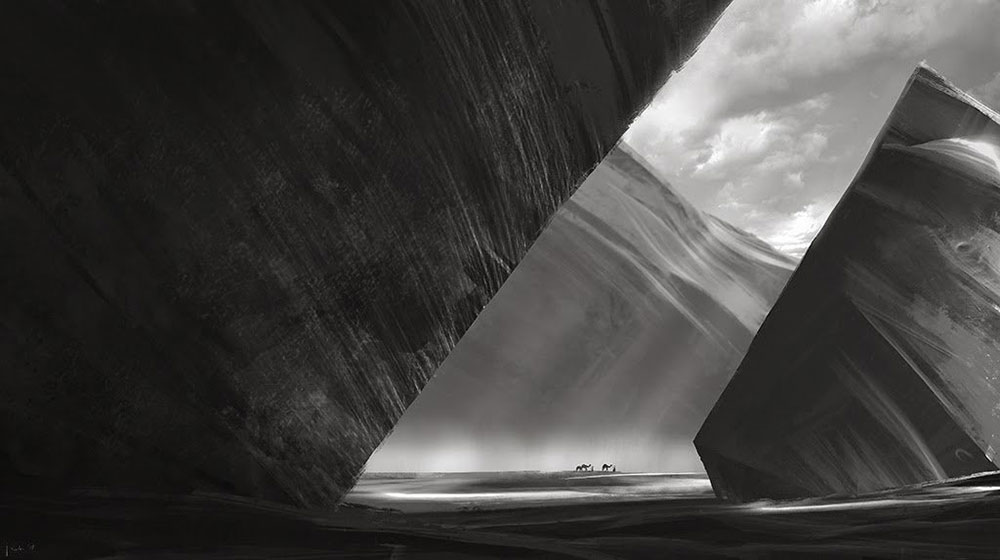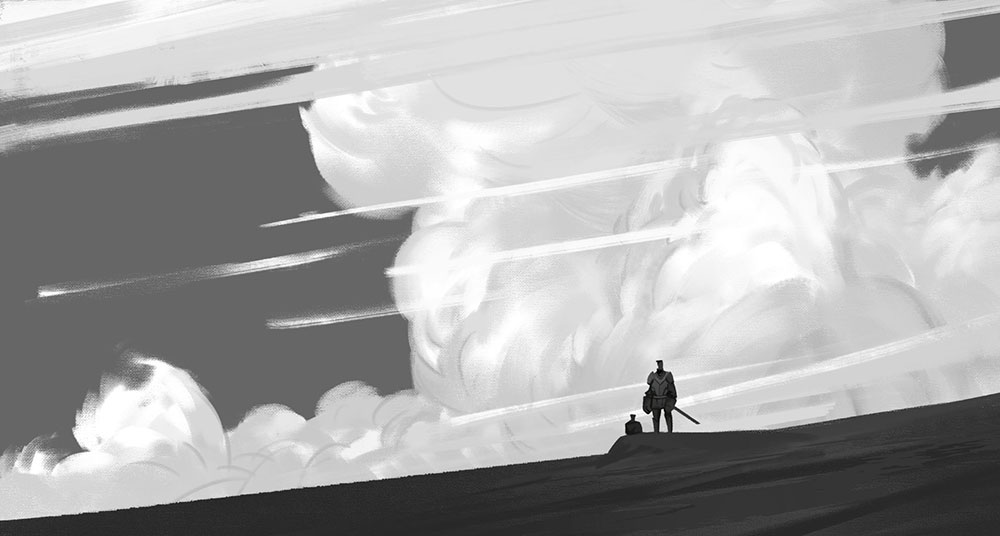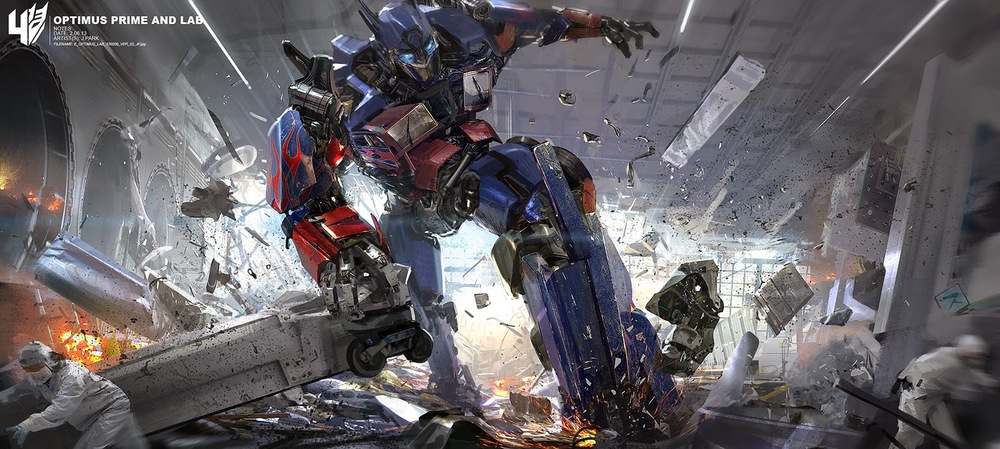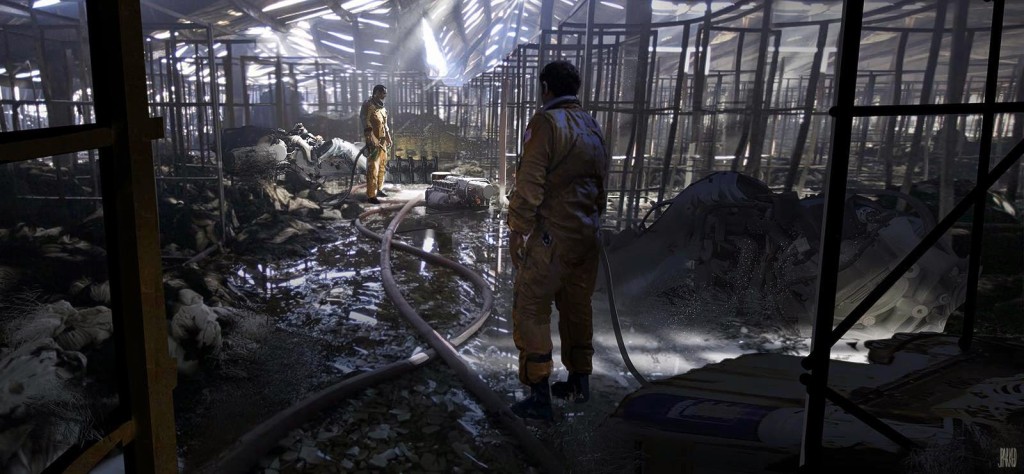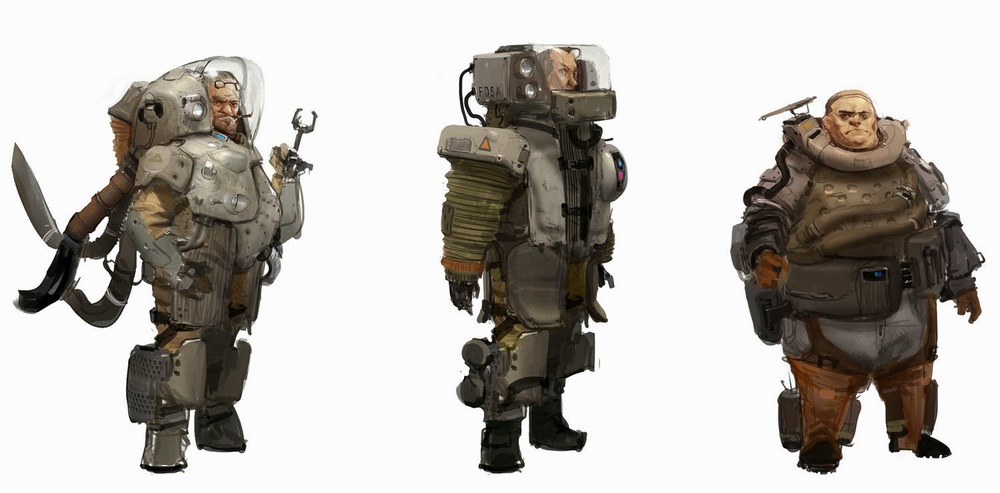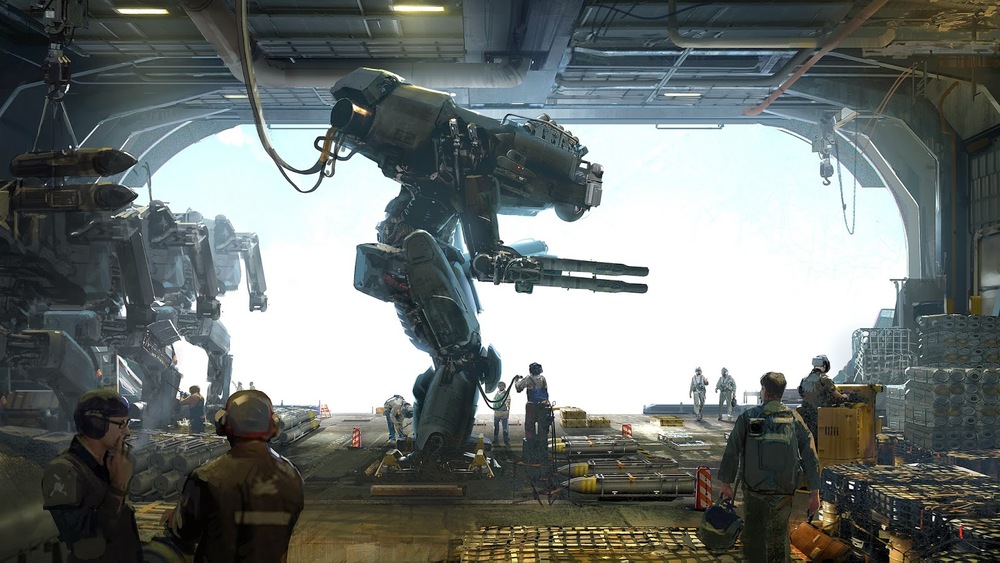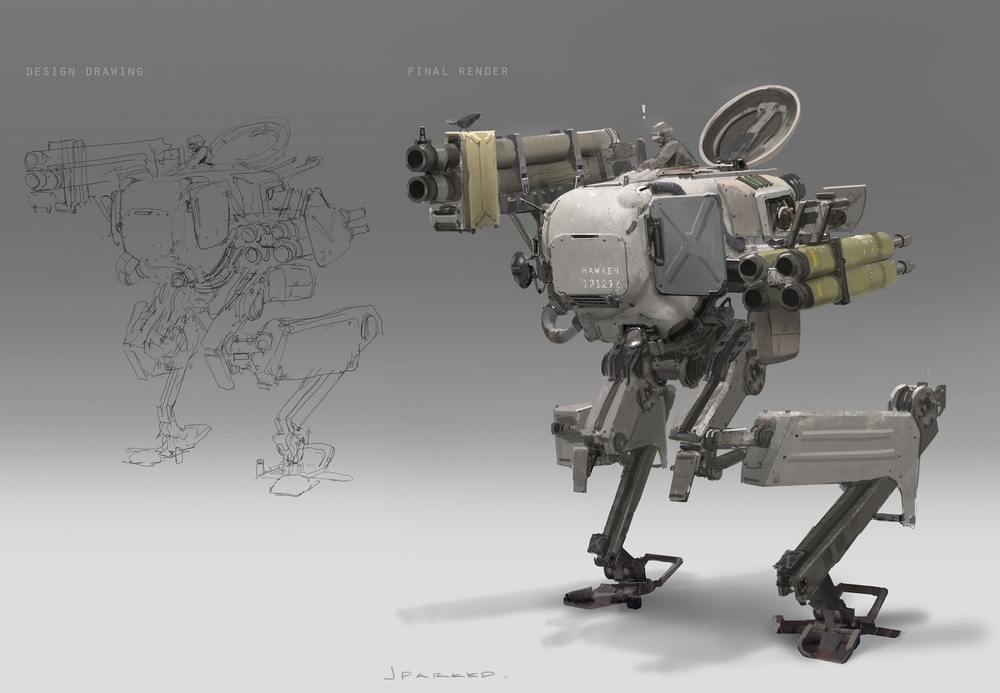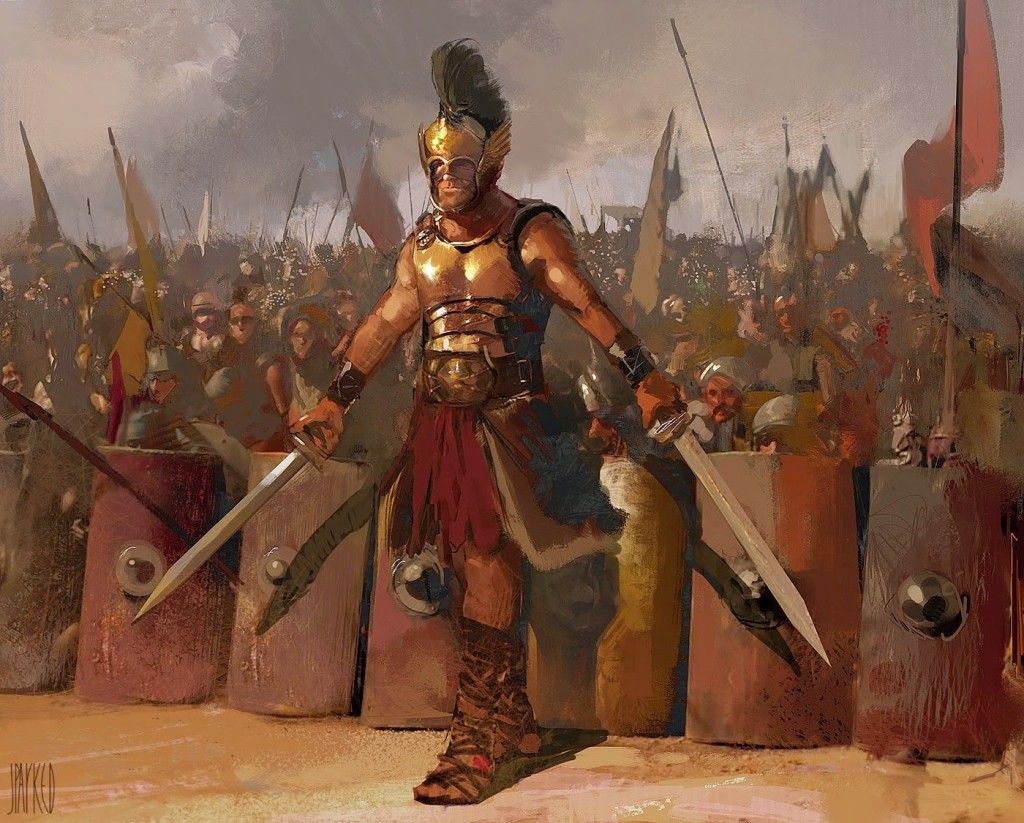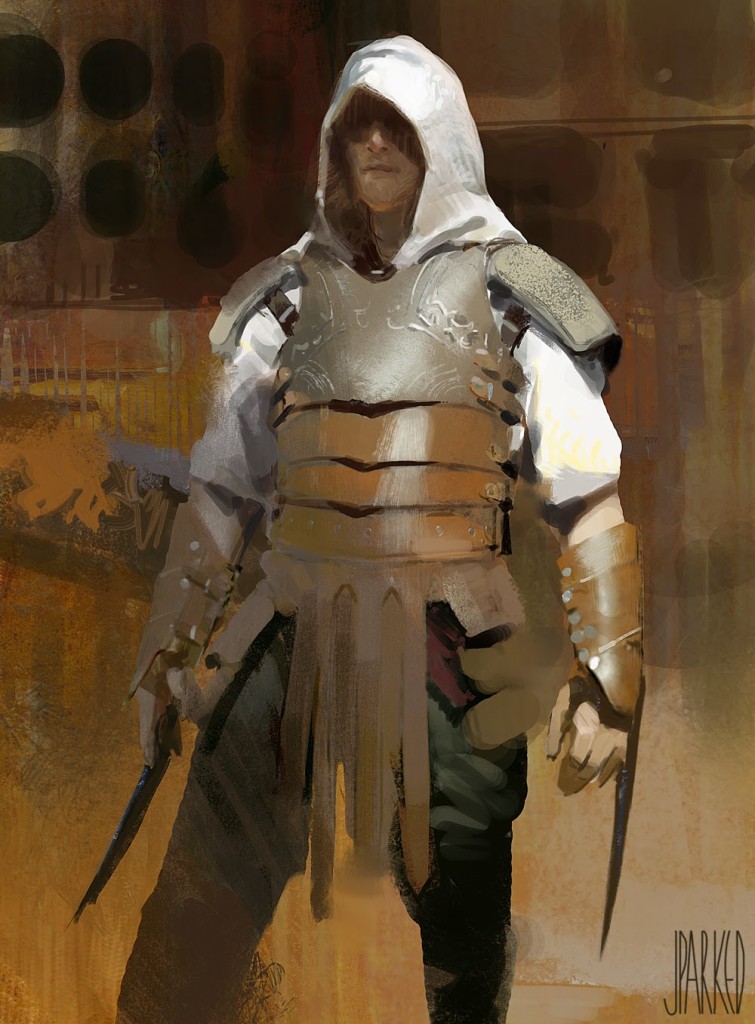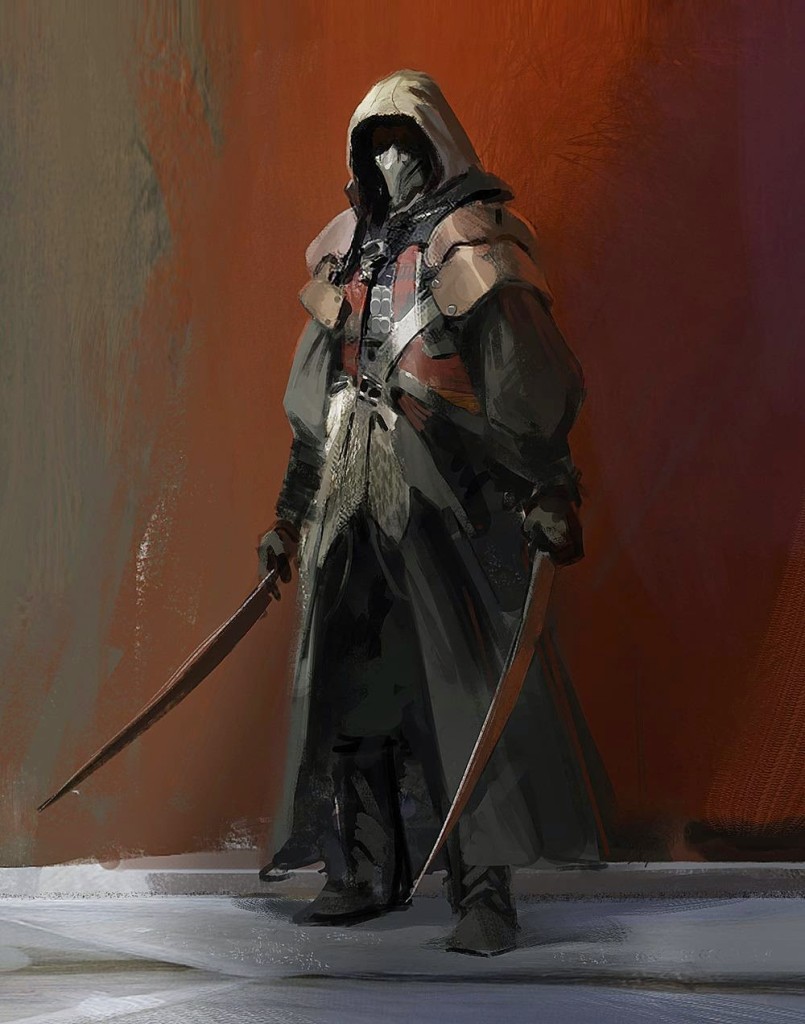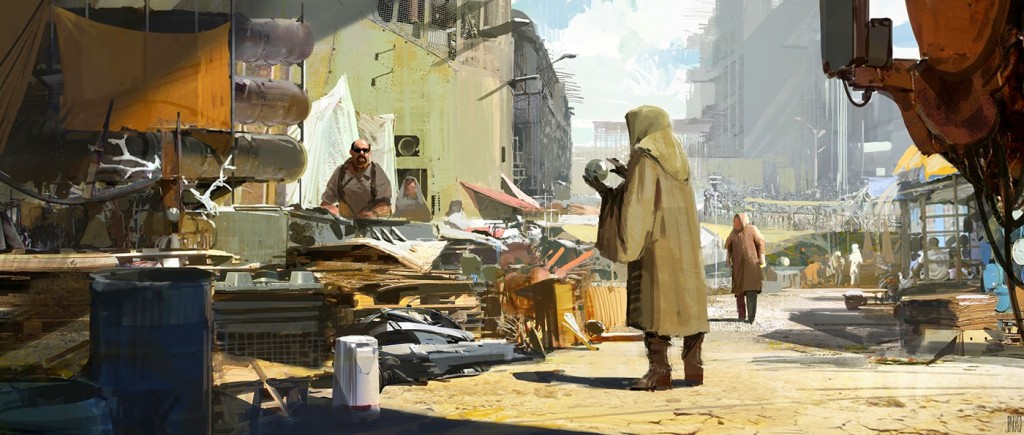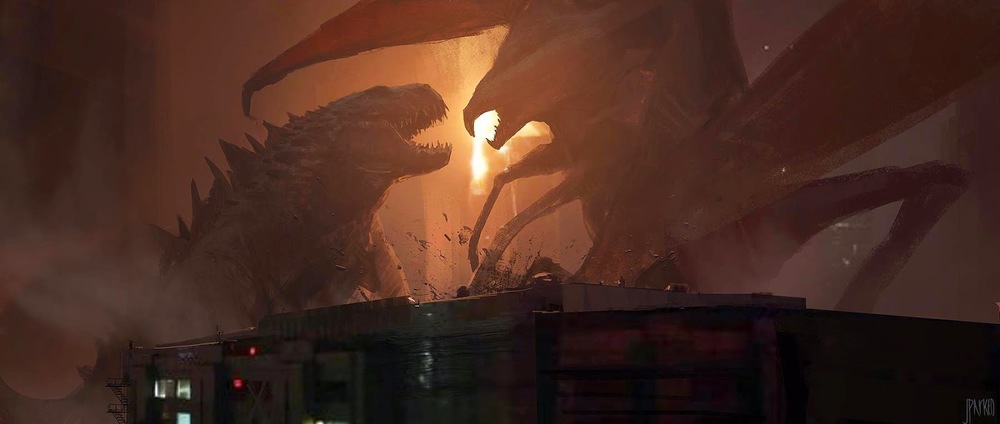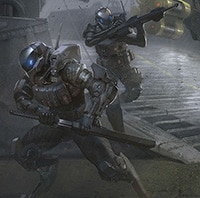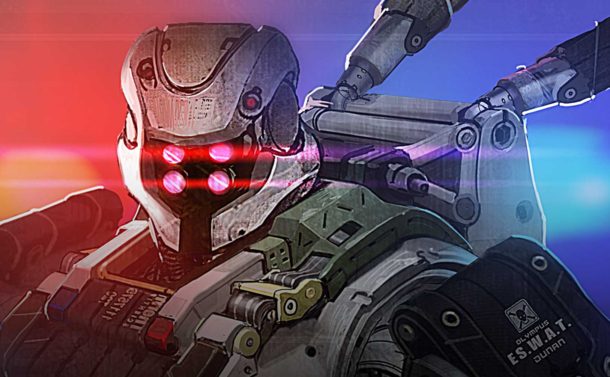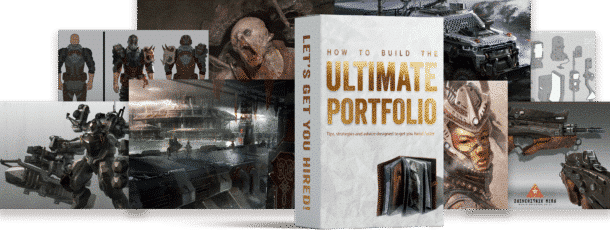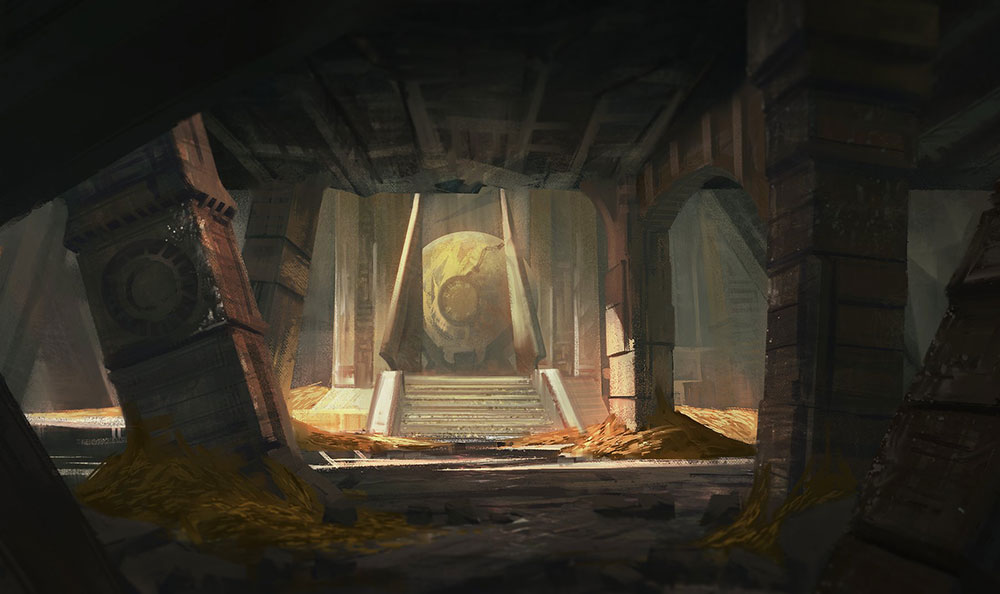
by Eliott Lilly | Feb 10, 2016 | Words of Wisdom
Kalen Chock is a concept artist and illustrator working in the video game and entertainment industry.
Check out his Portfolio
Head on over to http://www.robotpencil.net/ to learn about Kalen’s mentorship opportunities
Visit http://gumroad.com/k04sk for Kalen’s affordable art tutorials
Kalen Chock’s current portfolio examples:
WHAT’S THE MOST IMPORTANT PIECE(S) OF ADVICE YOU CAN OFFER STUDENTS THAT YOU WISH THEY HAD TOLD YOU IN ART SCHOOL?
WORK YOUR ASS OFF…THEN WORK HARDER!!! This business is competitive and hard. If you’re in art school getting the education can also be expensive.
I wish my school would’ve shown me how serious and hard this career path is— but also how rewarding it is too. That is something I try to convey to my students all the time.
ARE YOU AS SUCCESSFUL AS YOU THOUGHT YOU WOULD BE AT THIS STAGE IN YOUR LIFE? ASSUMING THAT THERE ARE NO SPACE-TIME PARADOX’S INVOLVED… IF YOU COULD GO BACK IN TIME 10 YEARS (KNOWING WHAT YOU KNOW NOW), WHAT WOULD YOU TELL YOUR YOUNGER SELF TO DO DIFFERENTLY IN YOUR CAREER AS AN ARTIST?
Personally I think I haven’t peaked yet, so I always feel like I can be way more successful, but I also think most artists feel this way. If I could give 19 year old Kalen some advice it would probably be: Don’t be too hard on yourself, don’t compare yourself to others (too much), to take care of your body by being more active, and to just enjoy the journey…it’s gonna be a long one.
AS AN ARTIST, WHAT DOES “SUCCESS” MEAN TO YOU?
Success to me is happiness and being able to do what you love. Not everyone wants to work on AAA games and not everyone wants to be the next big name artist, some may be happy working on small cell phone games and that’s totally ok. I think it’s important to not get caught up in the hype of things. Luckily there are so many paths an artist can take in their career and no one path is better than the other.
The three things I can do to achieve happiness in my career would require me to be nice to others, keep learning, and keep creating 🙂
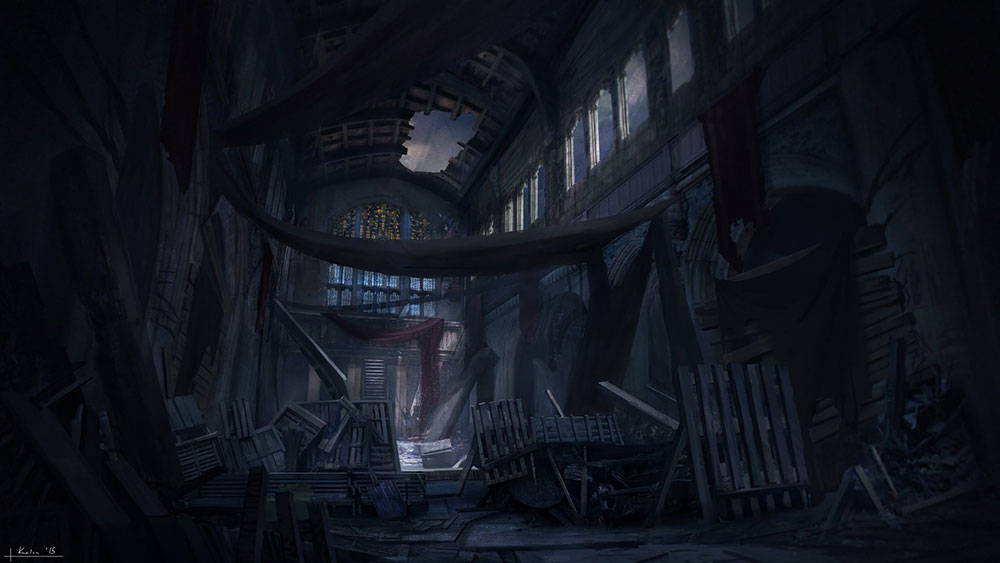
by Eliott Lilly | Feb 8, 2016 | Interviews
Kalen Chock is a concept artist and illustrator working in the video game and entertainment industry.
Professional Portfolio
Check http://www.robotpencil.net/ to learn about Kalen’s mentorship opportunities
Visit http://gumroad.com/k04sk for Kalen’s affordable art tutorials
Educational background:
Number of years in industry: 9
Projects worked on: Pirates Treasure Hunters , Dust , various Film Pitch Projects , various TV commercials .
Kalen Chock’s current portfolio examples:
In this first part of the interview, we asked Kalen Chock specific questions about what it’s like to be a concept artist in the entertainment industry, discuss some of the one-the-job challenges, as well as his educational background. Here’s what he had to say:
HOW OLD WERE YOU WHEN YOU DECIDED TO COMMIT TO BEING AN ARTIST? WHAT WERE YOUR MOTIVATIONS/ INSPIRATIONS?
I was kind of late to “Concept Art”- I didn’t know I wanted to pursue it until my last year of school. At my school we only had one class of digital painting (which was background design) and although I enjoyed the class, I was still exploring alternate skill sets (mainly modeling, animation, vfx, etc.). Ultimately, I realized that I liked painting on a tablet and concept art was something that I really enjoyed. It also helped, that I was pretty much surrounded by passionate artists all the time; Anthony Jones, Edgar Cardona, Nino Aguilar, and Mio Rosario, to name a few. They were the best in the school.
WHAT ARE THE BIGGEST CHALLENGES ABOUT YOUR JOB?
I think the biggest challenges are usually non art related. I always say: “Art is easy- life is hard”. (Which I still think is true).
I was young when I had my first art job (about 22, I think), and it was a challenge learning how to be a professional, networking, and adjusting to studio life. Everything from taking art direction, making mistakes and then getting scolded by the boss, to dealing with office politics, and even things like paying back student loans, taxes, balancing my personal time, were all life lessons I had to learn over the years.
It wasn’t easy, but I guess that’s just the pressure that comes with being an adult. The only solace that I can find is that I’m not the only person who is going through this. In fact, some people closer to home have also experienced a similar sort of thing than me. Most of the time it comes down to student loans, and some of my friends have had to get creative with how they pay it off. Most of them decided to look at this article from GoFundMe, (https://www.gofundme.com/c/blog/how-to-get-rid-of-debt) to see how crowdfunding can help them to get back on track with their finances. And it’s a brilliant idea if you ask me. Why didn’t I think of it? If it helps you to focus on other things, like art in my case, then why shouldn’t you try it?
I got through it eventually, but it wasn’t easy that’s for sure. Those lessons were tougher to adjust to, as opposed to learning color, perspective, texturing … etc.
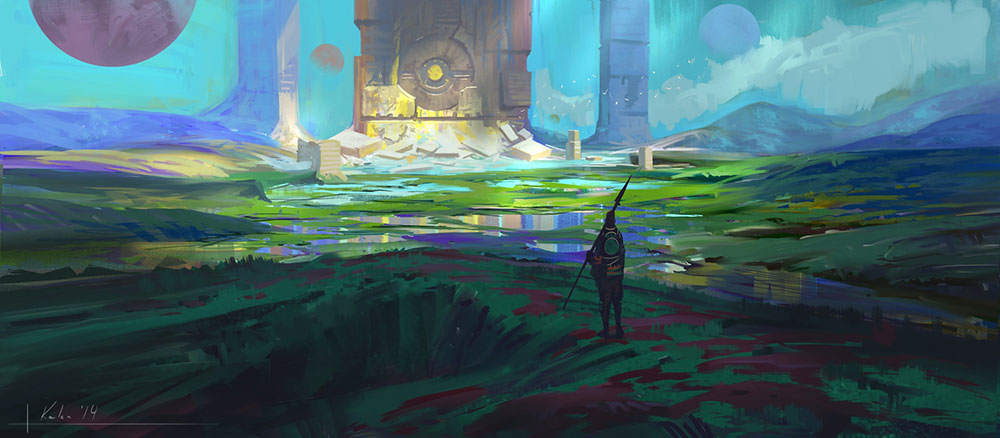
CAN YOU SHARE A PERSONAL STORY, ABOUT A HARD LESSON THAT YOU LEARNED (ON THE BUSINESS OR ARTISTIC SIDE OF THINGS), THAT COULD HAVE BEEN AVOIDED, HAD YOU BEEN BETTER INFORMED?
I have been rather lucky for the most part and haven’t had too many crazy hard lessons that I had to learn.
Only thing I can think of is save your work . You never know when a studio might lay you off and you will have nothing to show for it . If you can’t save your work then do a bunch of personal work on the side.
A few of Kalen Chock’s student examples:
-
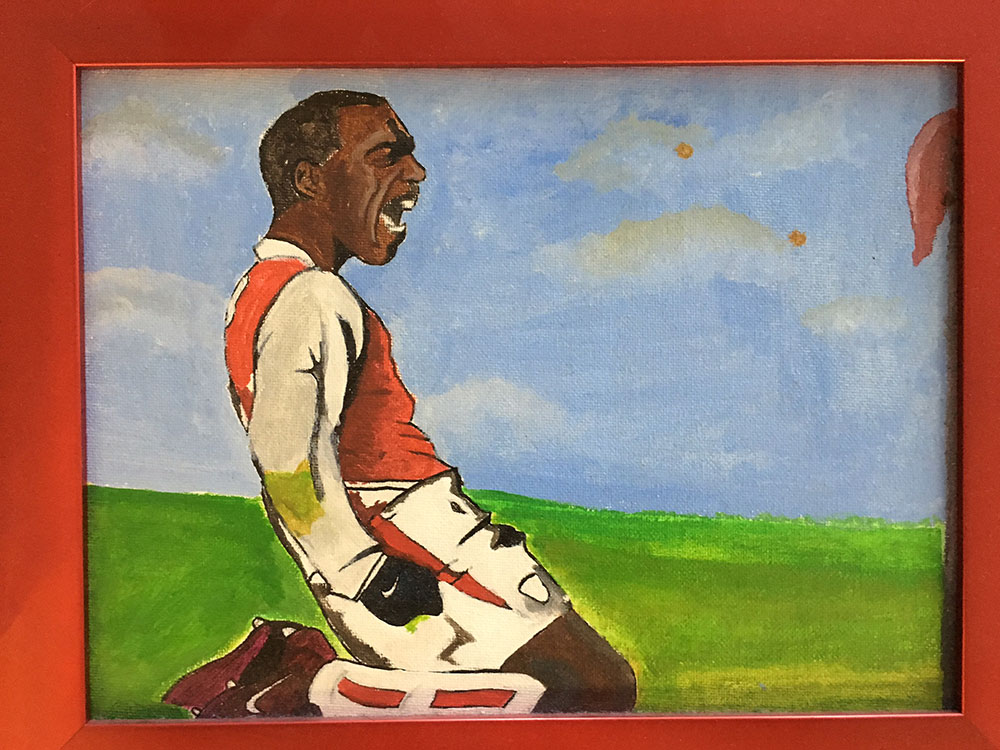
-
high school work
-

-
1st year of college
-
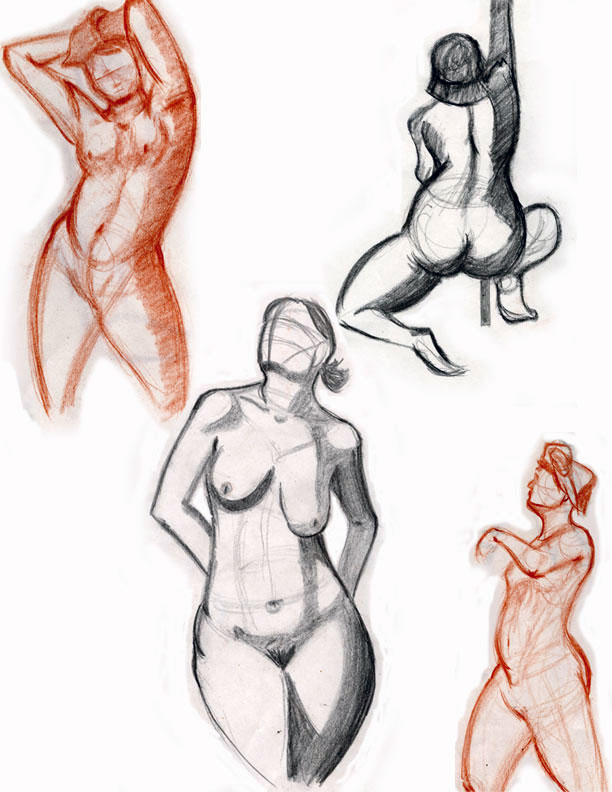
-
1st year of college
-
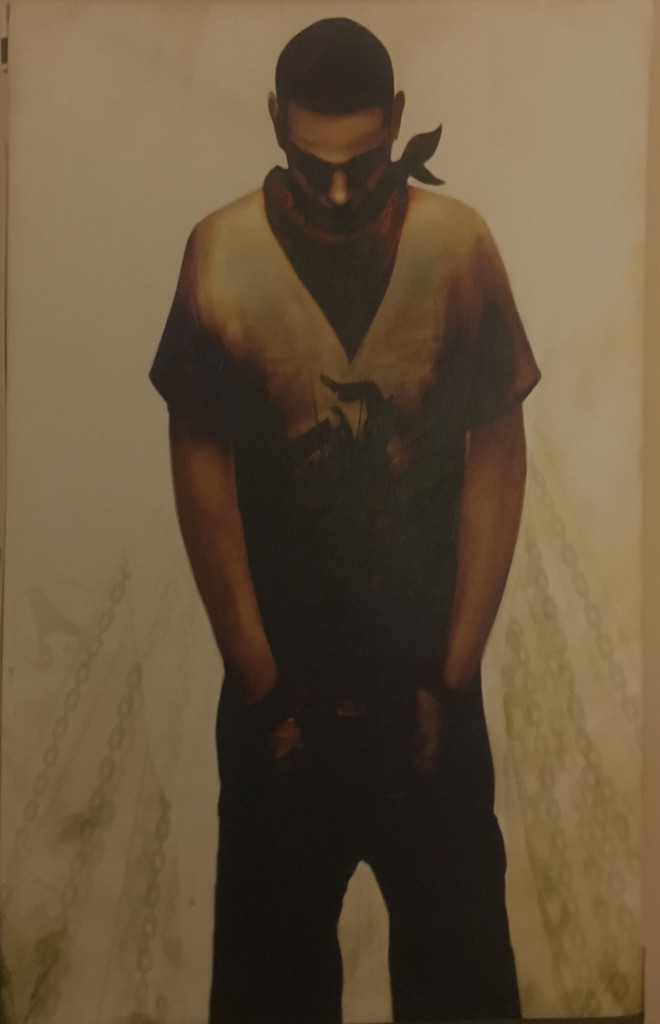
-
3rd year of college
DID YOU STUDY OR TAKE ADDITIONAL CLASSES/ LESSONS, OUTSIDE OF SCHOOL? IF SO, HOW FREQUENTLY? ARE THERE ANY CLASSES YOU TOOK WHICH SURPRISINGLY HELPED YOU IN THE LONG RUN MORE THAN YOU THOUGHT THEY WOULD?
I attended the Concept Design Academy while I was also enrolled at The Art Institute (during in my last year). I believe that we are students of art until the day we die, so I am always open to learning when I can. In fact, I currently go to life drawing at least once a week, try to practice traditional painting every other week, and I even take online classes to up my skills. It’s also important to do things that are non art related as well. To help clear my mind, I play lots of soccer and basketball when I can. Or I’ll run with my dog every morning, or do some martial arts when I can. Staying active mentally and physically is a good thing.
DID YOU HAVE ANY OUTSIDE HELP PUSHING YOU ALONG WITH YOUR TRAINING? FROM A MENTOR, PASSIONATE TEACHER? FAMILY? FELLOW STUDENT?
Yes; I have been lucky enough to be surrounded by amazing people and have had mentors, teachers, family and friends all impacting my life in a positive manner. No one gets to where they are without some help. Though it’s not necessary to have a mentor, they can be pretty helpful to have around; especially when it comes to seeking guidance for life problems.
My motto has always been: Prepare to walk this road alone if necessary, but take help if it is offered.
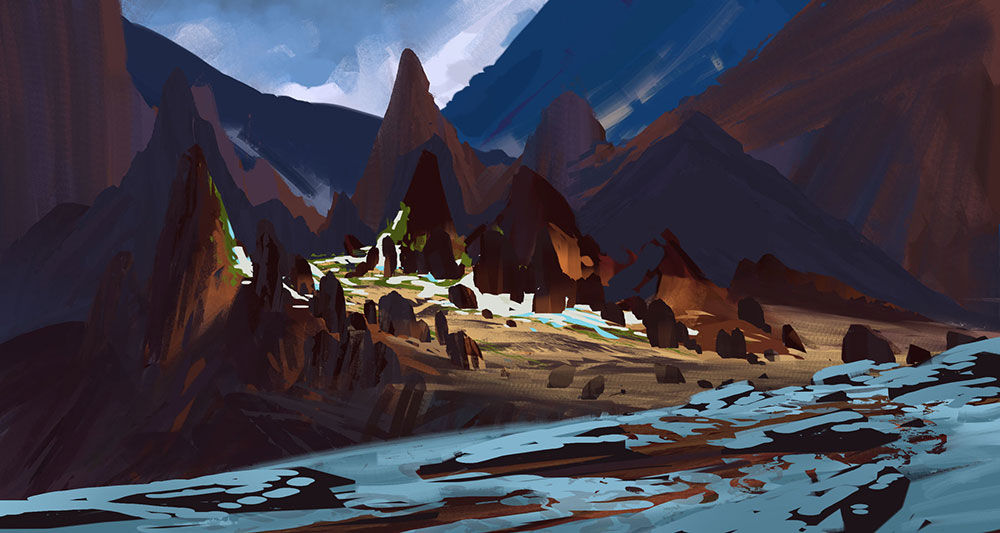
HOW VALUABLE WILL GETTING AN EDUCATION FROM A UNIVERSITY OR COLLEGE BE FOR ASPIRING ARTISTS WHO WANT TO BREAK INTO THE ENTERTAINMENT INDUSTRY? SHOULD THEY ATTEND A REGULAR SCHOOL WITH A LIBERAL ARTS PROGRAM? A 4 YEAR ART SCHOOL? OR JOB SPECIFIC TRADE SCHOOL (LIKE GNOMON, CONCEPT DESIGN ACADEMY, FZD, ETC). OTHER?
I get this questions a lot and to be honest it really depends on the type of person you are .
NOTHING is guaranteed in art. Therefore, going to art school will not guarantee you a job, just as being self taught will not guarantee you a job either.
To me it really just depends on on your personal circumstances and how you like to learn. We are fortunate to be in a time where one can take many different paths to get to the same destination . I think if you talk to a self taught artist who is successful vs a university art student who is successful. Chances are they will have very different backgrounds and upbringings which awesome, but one thing you will find similar across all paths of successful artists is that they worked super super super hard. Granted some paths are much cheaper than others but to me I don’t really think about the price -I simply think about if it will help me get to my destination and if it’s feasible.
This concludes Part 1 of our interview with Kalen Chock. In Part two, we discuss with Kalen his Dos and DONTs of portfolio building, how he branded and marketed himself in the beginning, and much more. All images used with permission by the artist. ©Kalen Chock
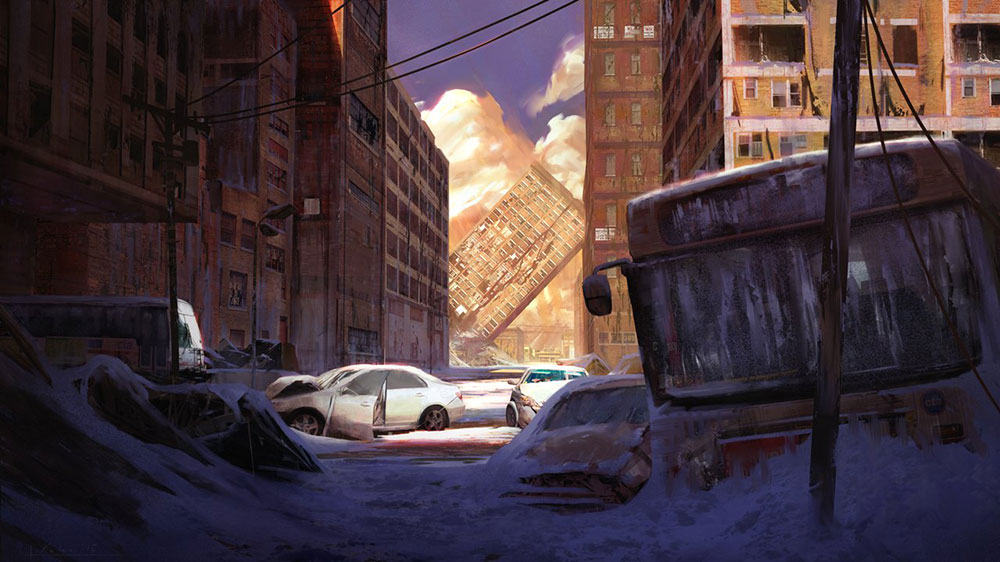
by Eliott Lilly | Feb 8, 2016 | Interviews
Kalen Chock is a concept artist and illustrator working in the video game and entertainment industry.
Professional Portfolio
Check http://www.robotpencil.net/ to learn about Kalen’s mentorship opportunities
Visit http://gumroad.com/k04sk for Kalen’s affordable art tutorials
Educational background:
Number of years in industry: 9
Projects worked on: Pirates Treasure Hunters , Dust , various Film Pitch Projects , various TV commercials .
Kalen Chock’s current portfolio examples:
If you haven’t already, be sure to check out Part one of this interview, where we asked him specific questions about what it’s like to be a concept artist in the entertainment industry, discuss some of the one-the-job challenges, as well as his educational background. Here, in part two of this interview, we ask Kalen Chock specific questions about building his portfolio, marketing himself in the industry and more. Here’s what Kalen Chock had to say:
HOW DID YOU STRUCTURE THE PORTFOLIO THAT LANDED YOU YOUR FIRST GIG? CAN YOU DESCRIBE THE TYPE OF WORK YOU HAD IN IT? WHAT STUDIO/ CLIENT WERE YOU APPROACHING- DID YOUR PORTFOLIO CATER TO THEM SPECIFICALLY? OR WAS IT MORE GENERAL?
To be honest my portfolio was terrible and had no structure; To this day I am not sure how I got hired . It was mostly just random environment paintings that I thought would be cool. I had only been doing it for about 8-9 months when I graduated so I was barely starting out. I did have a couple of characters and props, but for the most part it was all environments. Like a noob when I created a portfolio I didn’t know anything about tailoring my portfolio towards certain studios and clients. At that time I just focusing on creating paintings that didn’t suck.
HOW DID YOU HUNT DOWN YOUR FIRST JOBS IN THE INDUSTRY? FRIEND/ WORD OF MOUTH/ APPLIED ONLINE? IF YOU WERE JUST STARTING OUT TODAY, AS AN INTERMEDIATE DIGITAL ARTIST, WHAT TACTICS WOULD YOU EMPLOY TO LAND A GIG INTO THIS INDUSTRY?
Like most fairy tale stories of people who went to art school, when you graduate you have a portfolio show – which, if you’re lucky, a few employers will come and check out the fresh talent. I was lucky enough to meet a guy named Chad Lichty who was the producer of small startup game studio at the time. He saw my work at the show and a month later offered me a part time job (which eventually turned into full time work) He was the guy who gave me my first shot in the industry. To this day I owe that guy the world for believing in me enough to give me work even though in my mind I was not ready. Same thing goes for Brian McRae who was my art director at that time.
If you are an intermediate artist starting today, then my advice is just make good work, post where people can see it, and go to industry events to meet people. Usually those 3 things will land you work in some capacity. From there you just have build on it.
HOW DO YOU CURRENTLY PROMOTE YOUR ARTWORK? (WEBSITE ONLY? ON SOCIAL MEDIA? BOTH?) DO YOU HAVE ANY ADVICE FOR ASPIRING ARTISTS FIRST STARTING OUT, WHO NEED TO PROMOTE THEMSELVES.
I just create work, post it where people can see it, and be an active member in the artistic community. That last one is where I feel most people fall short. Most artist will post stuff and just wait for the applause and likes, but won’t “comment” and “like” other peoples work. I also see a lot of artists who get caught up in “status”, meaning they will only talk and be friends with an artist if they work at a big studio or can somehow help them elevate their own career. Most people can see right through it so being genuine is a big thing to me.
I think giving back is important, so make sure you’re active in the community; whether it’s connecting with artists, going to events, helping other artists, you should want to help create a better environment for the community of artists and in turn, yourself.
Don’t be afraid to let others in on your art journey, people love to see improvement. Its OK if you’re not amazing at the moment, no one is. If you constantly improve and post your work, then people will notice it and they will always look forward to your next “leveling up” moment.
WHAT QUALITIES DO YOU ASPIRE TO THAT DISTINGUISHES YOUR ARTWORK FROM OTHER ARTISTS? WHAT LED YOU TO DEVELOP THOSE QUALITIES? (FOR EXAMPLE: DO YOU PRIDE YOURSELF ON YOUR RENDERING ABILITIES? DESIGN SENSIBILITIES/ STYLE? BRUSH WORK? ETC). WHAT ADVICE DO YOU HAVE FOR ARTIST WHO WANT TO OBTAIN A “STYLE” TO THEIR LOOK.
Personally, I think “style” is something you develop when you’re much older and after you have lots of experience under your belt. You’re taste and mindset will change over time so I know if I do a style now, then I probably won’t like 6 months from now . Therefore, I am constantly exploring anything and everything. There isn’t much I really pride myself on at the moment, but I have been told on few occasions that people “love” my color choices, so I guess I can go with that one for now.
This concludes Part 2 of our interview with Kalen Chock. if you would like to read more, check out Kalen’s Words Of Wisom. All images used with permission by the artist. ©Kalen Chock
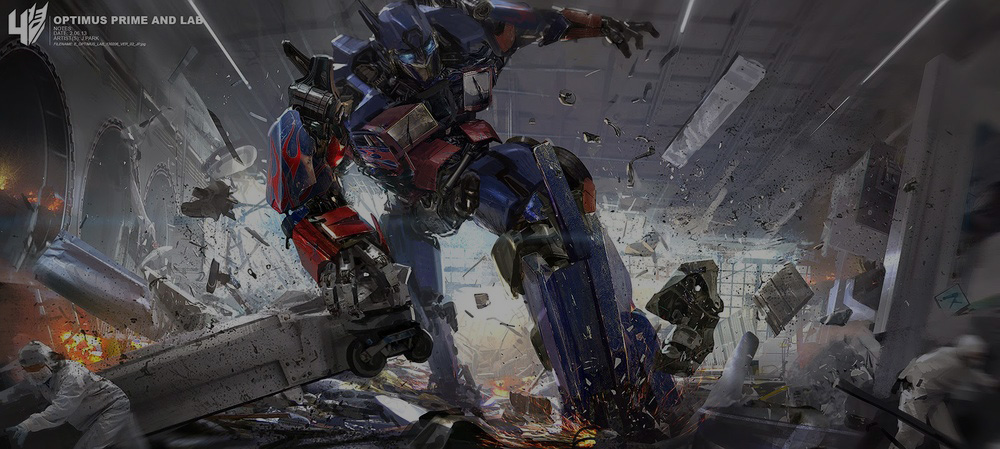
by Eliott Lilly | Feb 3, 2016 | Words of Wisdom
John Park is a freelance Concept Designer working in the entertainment industry currently living in California, United States.
If you would like to know more about John park, Please visit his:
Portfolio site
Find him on Patreon
Find him on Gumroad
Follow his Blog
Educational background: Art Center College of Design (Majored in Product Design, 2009)
Number of years in industry: 7+
Shipped titles/ Projects worked on: Film industry – Transformers, Godzilla, Lone Ranger, Maze Runner, Starwars, (current Avatar Sequels) Game industry – Black OPS 3, Hawken, Uncharted 4,
John Park’s current portfolio examples:
WHAT’S THE MOST IMPORTANT PIECE(S) OF ADVICE YOU CAN OFFER STUDENTS THAT YOU WISH THEY HAD TOLD YOU IN ART SCHOOL?
To focus on more Design. Just to further elaborate on what I mean “focus on more Designs” is to think outside the box. Think about story, function, culture, and reason. This will allow you to generate original concepts/ideas rather that what is just in the main-stream.
I wish I had more of this kind of education that challenges the mind rather than being a good ‘hand” (illustrator).
ASSUMING THAT THERE ARE NO SPACE-TIME PARADOX’S INVOLVED… IF YOU COULD GO BACK IN TIME 10 YEARS (KNOWING WHAT YOU KNOW NOW), WHAT WOULD YOU TELL YOUR YOUNGER SELF TO DO DIFFERENTLY IN YOUR CAREER AS AN ARTIST?
I think its all relative really, I really can’t regret or would want to take anything back. But if I were to go back in time and tell myself one piece of advice…it would be to follow my passion. Do my own thing, because you will have the rest of your life to be a working gear cog in a large machine.
I would highly advise people to try and do something of their own project, game, or even a story.
AS AN ARTIST, WHAT DOES “SUCCESS” MEAN TO YOU?
1. Hard work ethic
2. Understanding your strengths and weaknesses
3. Having mini-goals in your life
Most importantly doing what you love and still loving it everyday of your life.




